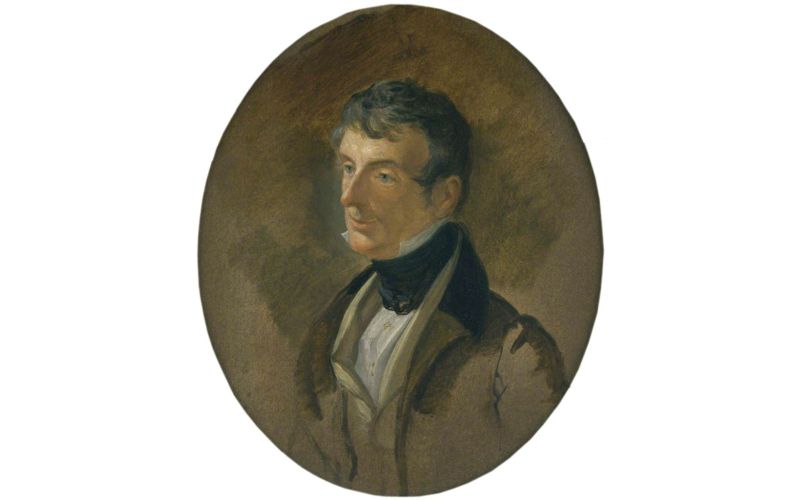100 heroes: William Bankes
The gay man who was instrumental in unlocking the secrets of the Rosetta Stone.

William Bankes was a politician, explorer, Egyptologist and adventurer.
Early life
Born in 1786, Bankes was the son of a politician. The family had a large estate called Kingston Lacy in Dorset.
He was educated at Westminster School and studied at Trinity College, Cambridge. At Cambridge, Bankes became close friends with Lord Byron – the two often travelled together.
Bankes travelled extensively, and had a particular passion for Egypt.
He was an avid collector, taking copious notes and drawings as he travelled up the Nile River and explored the surrounding regions.
During the Peninsular War – 1807-1814, in which Britain supported Spain and Portugal against France – Bankes served as aide-de-camp to the Duke of Wellington. The Duke became an important ally and supporter of Bankes.
Rosetta Stone
The Rosetta Stone was discovered in 1799 – it was created in 196 BC.
The stone is known for its crucial role in giving the scholars Jean-François Champollion and Thomas Young the key to decipher ancient Egyptian hieroglyphs. It is held within the collection of the British Museum.
The text recorded on the Rosetta Stone is dry and functional – it is a communication in which priests are asking for a tax break - but the importance of the text is that it says the same thing in three different scripts – this enabled Champollion and Young to crack the code of hieroglyphics through their research in the 1820s.
A little-known side-note to the story of the Rosetta Stone is that it was William Bankes who first suggested that the texts on the stone might all say the same thing. Bankes had previously acquired an obelisk that was used by Champollion and Young to assist with their translations. Bankes was instrumental in suggesting that a recurring symbol might represent a royal name.
Exile
In 1841, Bankes was forced into exile from England because of scandals surrounding his sexual encounters with men. The most public of these was when he was caught having sex with a guardsman in Green Park in London.
At the time, sodomy was a serious crime in England – it could be punished with the death penalty.
Bankes died in 1855 in Venice.